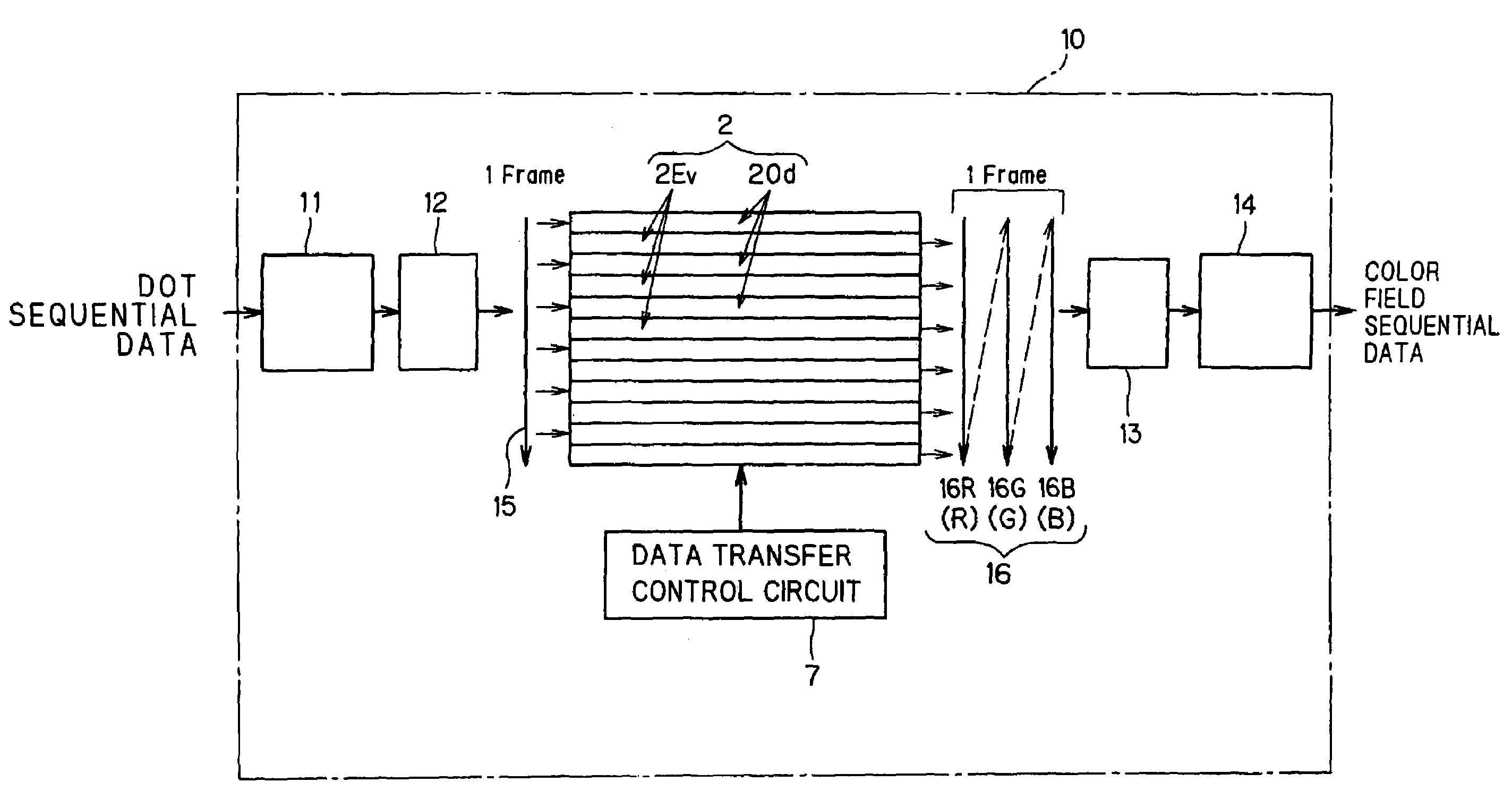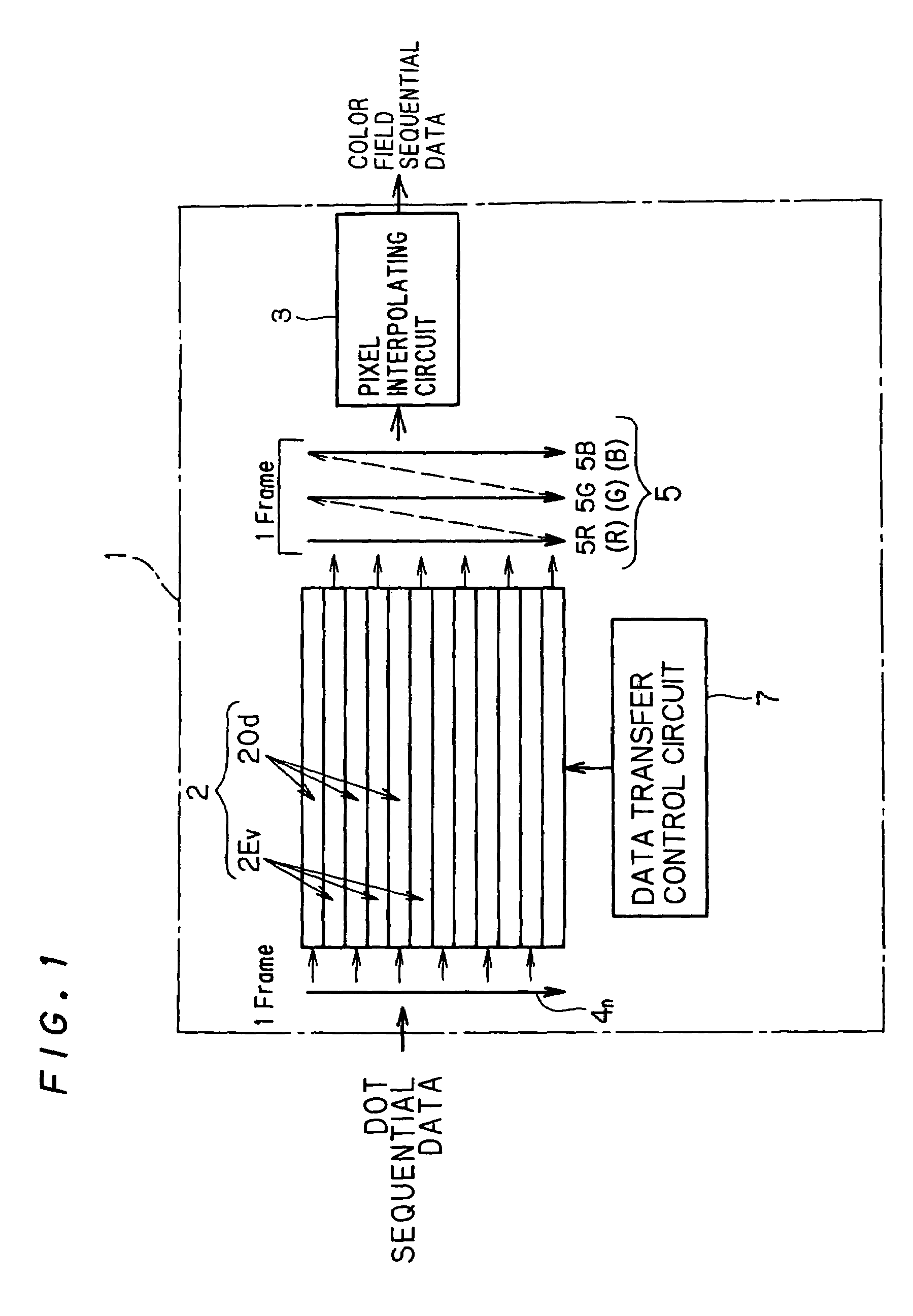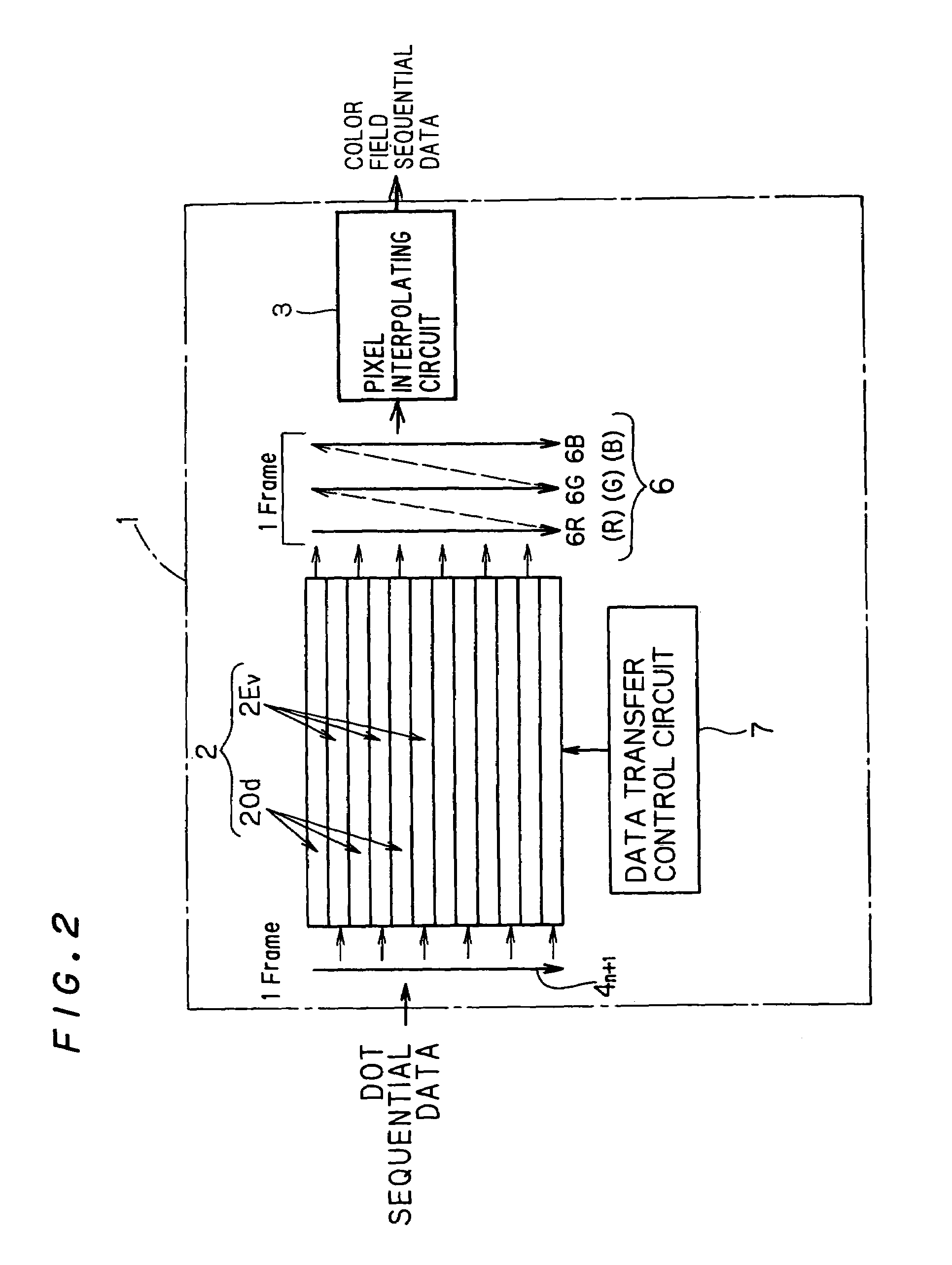Image conversion device, image conversion method and data conversion circuit as well as digital camera
a conversion circuit and digital camera technology, applied in the direction of signal generators with optical-mechanical scanning, television systems, color signal processing circuits, etc., can solve the problems of increasing circuit power consumption, difficulty in using a digital camera continuously, and color breaking phenomenon, so as to reduce color breaking and reduce positional offset. , the effect of high quality
- Summary
- Abstract
- Description
- Claims
- Application Information
AI Technical Summary
Benefits of technology
Problems solved by technology
Method used
Image
Examples
first preferred embodiment
[0138]FIGS. 1 and 2 are block diagrams that show a schematic construction of an image conversion device 1 in accordance with first preferred embodiment of the present invention. This image conversion device 1 is provided with an image storing unit 2 for storing dot sequential data consisting of color components of R, G, B, a data transfer control circuit 7 which carries out controlling operations to transfer dot sequential data to image storing unit 2 to store them therein and to read out the dot sequential data stored in image storing unit 2 in a color field sequential format so as to be transferred, and a pixel interpolating circuit 3 which carries out a pixel interpolating process on color field sequential data 5 or 6 that has been transferred from image storing unit 2. Here, such an image conversion device 1 is provided as an integrated circuit.
[0139]Image storing unit 2, which has a buffer area corresponding to approximately one frame, is provided with a first buffer area 2Od f...
second preferred embodiment
[0150]Next, an explanation will be given of second preferred embodiment of the present invention. FIG. 4 is a block diagram that shows a schematic construction of an image conversion device 10 in accordance with second preferred embodiment of the present invention.
[0151]In addition to a construction of image conversion device 1 according to the above-mentioned first preferred embodiment, this image conversion device 10 is further provided with a first color space conversion circuit 11 for color-space-converting inputted dot sequential data, and a sub-sampling circuit 12 which carries out a sub-sampling process on the dot sequential data that have been color-space-converted in the first color space conversion circuit 11, an over sampling circuit 13 which carries out a reverse conversion to the sub-sampling (hereinafter, referred to an over-sampling) to the color field sequential data 16 read out from image storing unit 2, and a second color space conversion circuit 14 which returns t...
third preferred embodiment
[0156]Next, an explanation will be given of third preferred embodiment of the present invention. FIG. 6 is a block diagram that shows a schematic construction of an image conversion device 20 in accordance with third preferred embodiment of the present invention.
[0157]In addition to the construction of image conversion device 1 in accordance with the above-mentioned first preferred embodiment, this image conversion device 20 is provided with a comparison circuit 21 which compares inputted dot sequential data 17 with the dot sequential data stored in image storing unit 2, an intra-frame determining circuit 22 which makes a determination as to whether or not the inputted dot sequential data are coincident with the dot sequential data stored in image storing unit 2 on the frame basis based upon a comparison signal outputted by the comparison circuit 21 and an operation mode control circuit 23 which outputs a switching control signal for switching modes to either one of a motion picture...
PUM
 Login to View More
Login to View More Abstract
Description
Claims
Application Information
 Login to View More
Login to View More - R&D
- Intellectual Property
- Life Sciences
- Materials
- Tech Scout
- Unparalleled Data Quality
- Higher Quality Content
- 60% Fewer Hallucinations
Browse by: Latest US Patents, China's latest patents, Technical Efficacy Thesaurus, Application Domain, Technology Topic, Popular Technical Reports.
© 2025 PatSnap. All rights reserved.Legal|Privacy policy|Modern Slavery Act Transparency Statement|Sitemap|About US| Contact US: help@patsnap.com



